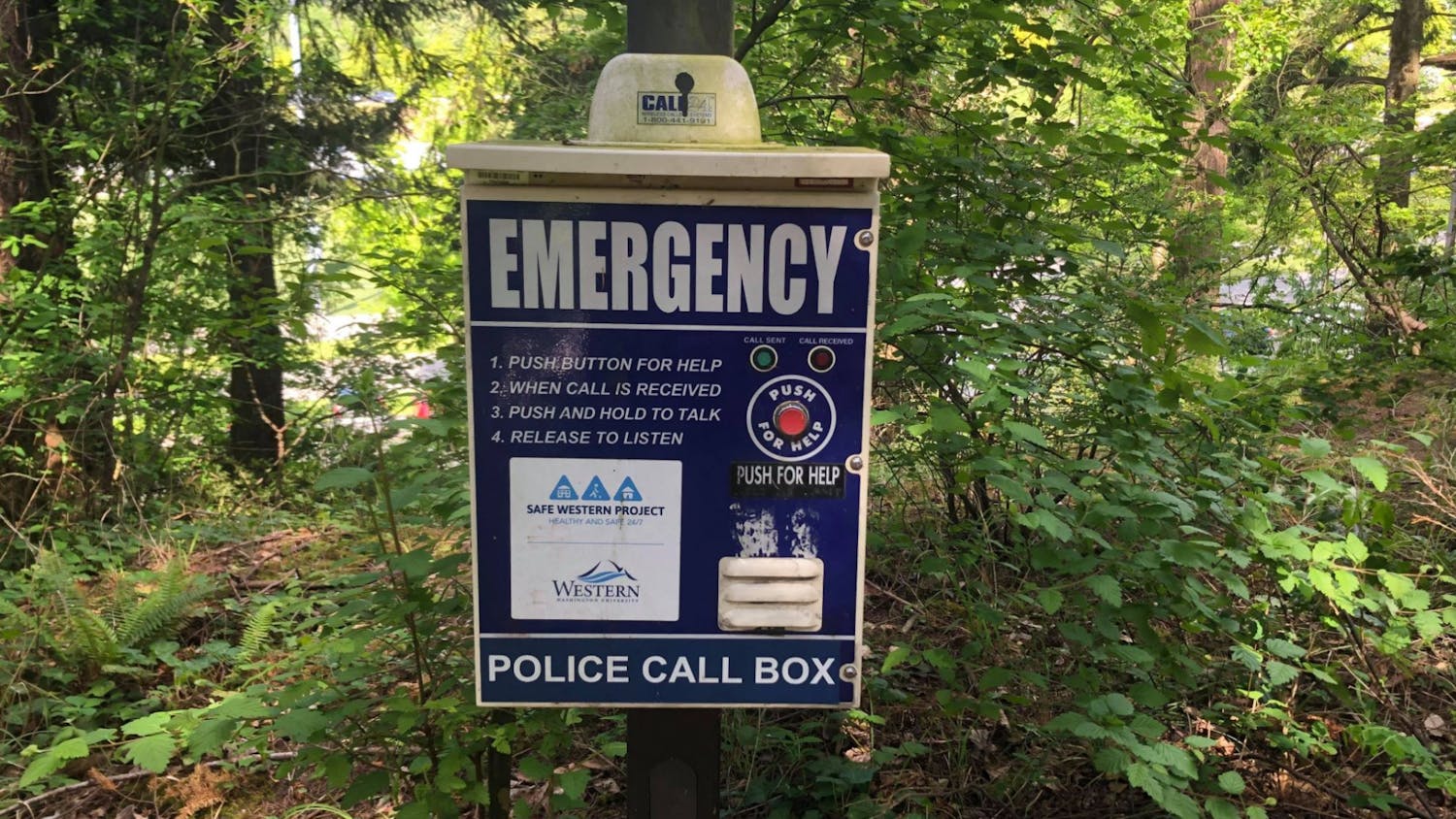
This is the third article in a four-part investigative series about the forced resignation of a LGBTQ+ student and the role of religious institutions on Western’s campus. Parts one, two and four can be found here.
In early 2019, Leah Adams was forced to resign from her position at the WWU Newman Center after coming out to her boss as lesbian. Her resignation follows several similar incidents involving LGBTQ+ employees at religious organizations, and raises complicated questions about how Western’s anti-discrimination policy (and Washington state law) apply to religious nonprofits.
A legal loophole
In February, the Seattle Archdiocese became the subject of controversy after two teachers at a Seattle Catholic school said they were forced to resign after telling their boss they intended to marry their respective same-sex partners. Their resignation received national media coverage and prompted a number of protests from parents and students in the community.
The resignation and subsequent protests mirrored a similar incident involving the removal of a gay principal from Eastside Catholic High School in 2014. In both cases, the Seattle Archdiocese initially released statements indicating the resignations had been voluntary, contradicting the employee’s accounts.
The Washington State Law Against Discrimination, RCW Chapter 49.60, prohibits employment discrimination based on sexual orientation, but there is an exemption for religious nonprofits. The exemption has been subject to several legal challenges, most recently by Matthew Woods, an attorney who was denied employment by Union Gospel Mission (a religious nonprofit) because of his sexual orientation. The case made its way to the Washington State Supreme Court, where it is awaiting a final ruling.
Denise Diskin, who represented Woods, argued that the exemption is being used to unfairly discriminate against members of the LGBTQ+ community.
“This is not a thing that is being invoked by religious nonprofit employers that have issues with other groups of people in Washington,” Diskin said. “It is consistently LGBTQ people. And what that means is that LGBTQ people as a class are not able to enjoy that certainty that the [Washington Law Against Discrimination] is supposed to provide.”
Diskin said that the exemptions in the law don’t apply to people who work for religious institutions in a non-religious capacity. While the Catholic Church isn’t obligated to allow women into the priesthood, the law might compel the church to hire women into secretarial or other non-religious positions.
“The purpose of the Washington Law Against Discrimination is that when anybody in the state of Washington applies for a job, they can rest assured that they will not be denied that job based on some characteristic inherent to them that has nothing to do with their ability to perform that job,” Diskin said.
Faith on campus
The Newman Center is one of 16 religious clubs that are officially recognized by Western. Religious clubs are ineligible to receive Associated Students funds, but are allowed to hold events on campus with the same privileges as other registered clubs, said Western club activities manager Jennifer Cook.
The AS clubs recognition procedure stipulates that “the purpose of the organization must be consistent with the mission of the ASWWU,” and that “participation in an organization must be open to all currently enrolled WWU students on a non-discriminatory basis.”
In order to be recognized, clubs must submit a copy of their constitution and bylaws. Article two of the Newman Center’s constitution states that membership is open to all currently enrolled students on a non-discriminatory basis.
According to Cook, religious clubs are bound by the same set of rules as secular clubs. If violations occur, the AS Activities Council may decide to impose sanctions such as denial of access to resources or revocation of club recognition. Cook said she is not aware of any violations by religious clubs being taken to the AS Activities Council in the past five years.
Adams said she isn’t sure if her removal would qualify as a violation of club policy. She said she was forced to leave her position as an employee, and told she could no longer volunteer at Mass, but was never told she could no longer participate in the club.
The presence of religious clubs on publicly funded campuses has caused legal problems in the past. In 2010, Christian Legal Society (CLS) applied to be a recognized student organization at University of California Hastings College of the Law. Hastings denied the request because the CLS bylaws excluded members who engage in homosexual behavior, directly opposing Hastings’ nondiscrimination policy.
The CLS sued on First Amendment grounds, but the U.S. Supreme Court ultimately upheld Hastings’ policy requiring student organizations to accept all students in order to obtain recognition from the university.
The Line-Up:
Monday: WWU Newman Center forced resignation of student employee after learning of same-sex partner
Wednesday: For LGBTQ+ employees at religious organizations, a murky legal landscape on campus and in the courts
Thursday: In wake of resignation, a journey of faith and acceptance

Nate Sanford is the editor-in-chief of The Western Front and a fourth-year news/editorial journalism major. His reporting focuses on the environment, local politics, urban policy and anything else that matters. His writing has appeared in Crosscut, the Inlander, Whatcom Watch and at least one desk in Haggard Hall. You can find him on Twitter @sanford_nate and at natesanford.westernfront@gmail.com.





